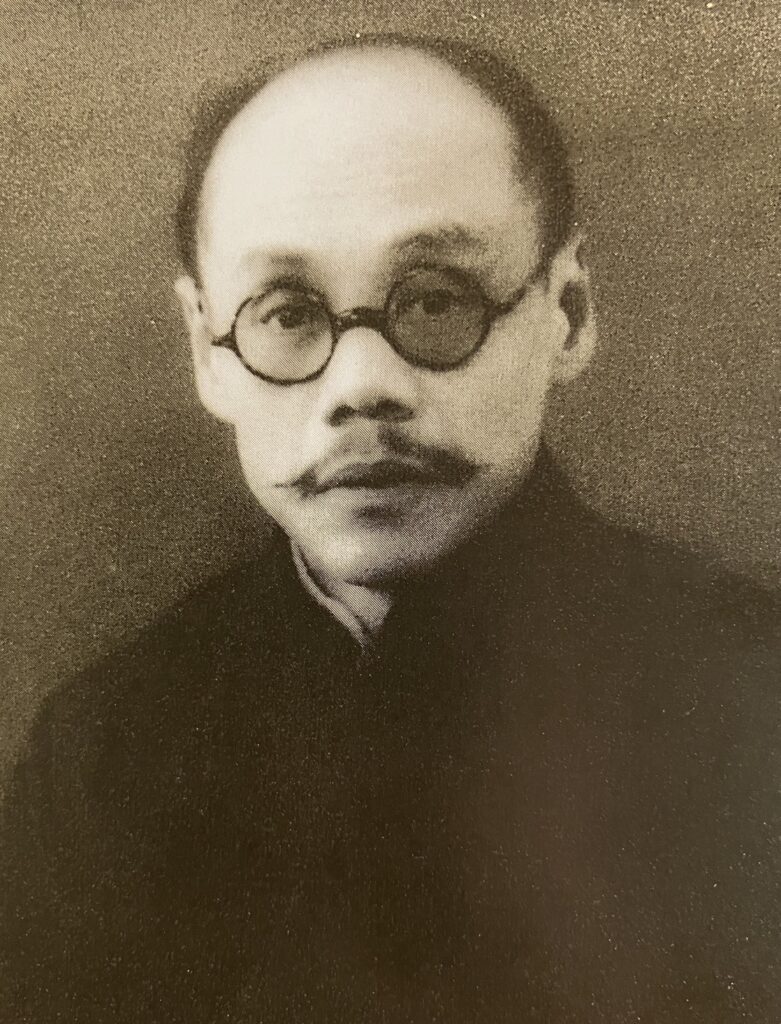
Originaire de Nantong (Jiangsu), Gu Baoheng étudie à l’Université Keiō (Keiō Gijuku daigaku 慶應義塾大学) de Tokyo. À son retour en Chine, il enseigne à l’École centrale d’études politiques (zhongyang zhengzhi xuexiao 中央政治學校) et travaille dans l’administration nationaliste au ministère de l’Industrie et du commerce et au Yuan d’examen.
Au moment de la formation du gouvernement de Wang Jingwei en 1940, Gu est nommé au Comité préparatoire de la Banque centrale de réserve (zhongyang chubei yinhang 中央儲備銀行) et secrétaire général du Comité de gestion des vivres (liangshi guanli weiyuanhui 糧食管理委員會), dont il prend la direction en 1942. Proche à l’origine de Mei Siping et de la clique CC de Nankin, il gagne les faveurs de l’entourage de Wang Jingwei, notamment de Chen Chunpu. Lorsque le comité est promu au rang de ministère des Vivres (liangshibu 糧食部), il en garde la tête malgré sa mise en cause par Tao Xisan et Lü Yifeng en décembre 1942. Il réchappe de cette première affaire grâce à Wang Jingwei qui déclare, lors d’une session du Comité politique central, le 17 décembre 1942, que Gu ne doit pas être puni.
Début 1944, il est rattrapé par le scandale de spéculation sur le riz impliquant Hou Dachun et Hu Zheng. Privé de la protection de Wang qui se meurt à Nagoya, Gu Baoheng est arrêté et condamné à mort. Selon Jiang Nanchun 江楠春 – un proche collaborateur qui lui rend visite en prison, Gu semble “souffrir le martyr d’être victime d’une injustice.” Grâce à Chen Bijun, il voit finalement sa condamnation commuée en une peine de dix ans de prison pour « services rendus à la cause de la paix ». Ses subalternes impliqués dans l’affaire n’ont pas cette chance et sont rapidement exécutés pour l’exemple.
Au moment de la reddition japonaise, son camarade de Keiō, Yuan Yuquan, plaide en sa faveur auprès de Chen Gongbo qui accepte de le libérer, mais s’enfuit au Japon avant que la procédure ne soit achevée. Arrêté par les Nationalistes, Gu est à nouveau condamné, cette fois pour haute trahison, à la prison à vie. En 1949, les Communistes le transfèrent de la prison de Nankin à celle de Shanghai. Libéré en 1976, il meurt vingt ans plus tard à Chengdu.
Sources : ZMSD, p. 1478 ; Yuan Yuquan 2010, p. 152-153 ; Jiang Nanchun 1981, p. 112 ; ZG, n°435, p. 3 ; ADF 327.
A native of Nantong, Jiangsu, Gu Baoheng studied at Keiō University in Tokyo. Upon his return to China, he taught at the Central Institute of Political Studies (zhongyang zhengzhi xuexiao 中央政治學校) and worked in the Nationalist administration at the Ministry of Industry and Commerce and the Examination Yuan.
After the formation of the Wang Jingwei government in 1940, Gu was appointed to the Preparatory Committee of the Central Reserve Bank (zhongyang chubei yinhang 中央儲備銀行) and secretary-general of the Food Management Committee (liangshi guanli weiyuanhui 糧食管理委員會), which he headed from 1942. Gu was originally close to Mei Siping and the Nanjing CC clique, but came into favor with Wang Jingwei’s entourage, especially Chen Chunpu. When the committee was promoted to become the Ministry of Food (liangshibu 糧食部), Gu kept its head despite being accused of corruption by Tao Xisan and Lü Yifeng in December 1942.
In early 1944, he was caught up in the rice speculation scandal involving Hou Dachun and Hu Zheng. Deprived of the protection of Wang who was hospitalized in Nagoya, Gu Baoheng was arrested and sentenced to death. According to Jiang Nanchun 江楠春 – a close associate who visited him in prison, Gu appeared to be “suffering the martyrdom of being a victim of injustice.” Thanks to Chen Bijun, his sentence was eventually commuted to ten years in prison for “services to the cause of peace”. His subordinates involved in the scandal were not so lucky and were quickly executed to set an example.
At the time of the Japanese surrender, his comrade from Keiō, Yuan Yuquan, pleaded on his behalf with Chen Gongbo, who agreed to release him, but fled to Japan before the procedure was completed. Arrested by the Nationalists, Gu was again sentenced, this time for high treason, to life imprisonment. In 1949, the Communists transferred him from Nanjing to the Shanghai prison. Released in 1976, he died twenty years later in Chengdu.